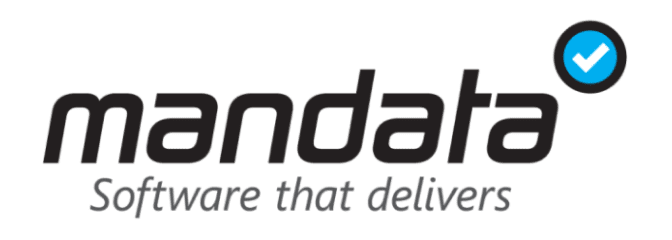The benefits of using a waste management software for waste transport operators
The waste management sector encompasses the collection, transportation, and disposal of various types of waste generated. It involves a range of processes and professionals working together to ensure proper waste handling and compliant practices are undertaken.
Waste transport operators play a crucial role within the sector, their primary responsibility is to collect and transport waste from its source to designated treatment or disposal facilities. Waste transport operators work closely with waste management companies, and regulatory authorities to fulfil their jobs effectively.
This is where waste management software comes in, providing businesses with a digital platform to streamline waste management processes and achieve significant benefits. In this article, we’ll explore the benefits of using waste management software for businesses.
1. Streamlining Waste Management Processes
One of the most significant benefits of using waste management software is the ability to streamline waste management processes. Traditional waste management processes can be time-consuming and prone to error due to manual data entry and significant quantities of paper-based records. Waste management software simplifies many of these processes, providing a digital platform for recording, tracking, and analysing the transport of waste.
Waste management software enables businesses to create and manage waste disposal consignments, schedule pick-ups, and track waste volumes and types, creating increased data accuracy and helping simplify the invoicing process with easily being able to update weights and quantities all from a mobile app. This reduces manual effort from your office staff and increases efficiency, but also gives businesses the opportunity to enhance visibility on waste jobs. Digital record-keeping can reduce the need for paperwork and possibly duplication, freeing up employee time and reducing labour costs.
Waste management systems help simplify the process of transporting and disposing of waste by finding the quickest and most efficient routes possible, reducing time spent on the road and making the most of miles per gallon per job. Real-time data and reporting can identify driver behaviour patterns, encouraging drivers to demonstrate good driving practices that can help with cost savings and increase profitability of jobs. As well as being able to re-use job date to generate reports.
2. Increased pricing accuracy
Another major benefit of using waste management software is increasing the accuracy of job value. As waste disposal companies place jobs with transport operators, the initial quoted price is simply just an estimate. It’s not until the driver collects the load, the driver is able to get an accurate view of the load weight or quantity they will be transporting.
Without a waste management software, additional burden on admin can be created for office staff due to weights and quantities only being updated once the driver has returned to the office with further details including their waste transfer note. This prolongs the invoicing process and equally creates a knock-on effect on cashflow.
With the right software in place, you’ll be able to update pricing quickly, easily and instantly of jobs to reflect accurate weights and quantities of waste transported and disposed of, meaning you’ll get paid correctly for jobs that have been completed.
3. Buy time back for your staff and business
Creating a digital audit trail not only gives you additional peace of mind your documents are stored and backed up in a cloud-secured environment, but also creates less of a burden on your office staff to organise, manage and store physical paperwork.
By digitally storing documentation, you can quickly resolve customer queries on outstanding or completed jobs in just a few clicks, improving your customer experience and satisfaction, and enabling your staff to resolve queries on the spot.
Cut back on time spent on invoicing thanks to electronic waste transfer notes. Upon successful delivery of waste consignments, drivers can take photo evidence or gather an electronic signature from the customer to acknowledge the goods as received. These electronic waste notes are sent immediately back to the office staff, where proof documentation and invoices are automatically consolidated to the job, ready to be sent to the customer which saves time and speeds up cashflow for your business.
4. Ensuring Regulatory Compliance
Waste management is subject to numerous regulatory requirements, and businesses must comply with a range of laws and regulations related to transportation and disposal of waste. Non-compliance can lead to fines and legal liabilities, therefore businesses must ensure that their waste management processes are in line with regulatory requirements.
Waste management software can help businesses to stay compliant with easy-to-produce quarterly Environmental Agency (EA) Return reports, generated within a few clicks as well as having a digital audit trail to hand for on the spot, roadside inspections. With the right waste management system and increased data accuracy, be sure your EA returns and inspections are set up for success.
5. Enhancing Operational Visibility
Waste management software can provide businesses with greater operational visibility, enabling them to make more informed decisions regarding waste management jobs. Real-time data and analytics enables waste operators to track waste volumes, costs, and performance.
This data can be used to identify opportunities to improve waste management processes, reduce costs, cut back on administrative time, as well as being able to easily identify outstanding invoiced jobs using standard reports. Waste management software can also help businesses to identify areas that require additional attention, such as vehicle maintenance or driver training.
In conclusion, waste management software offers significant benefits to businesses of all sizes, including streamlining waste management processes, simplifying regulatory compliance, and enhancing operational visibility. By implementing a waste management software, you can increase job satisfaction, reduce staff churn and possibly improve driver mental wellbeing by reducing the reliance on paperwork carried and manual data entry managed by staff. With the right software tools in place, businesses can achieve greater efficiency, reduce costs, and even reduce their carbon footprint.

